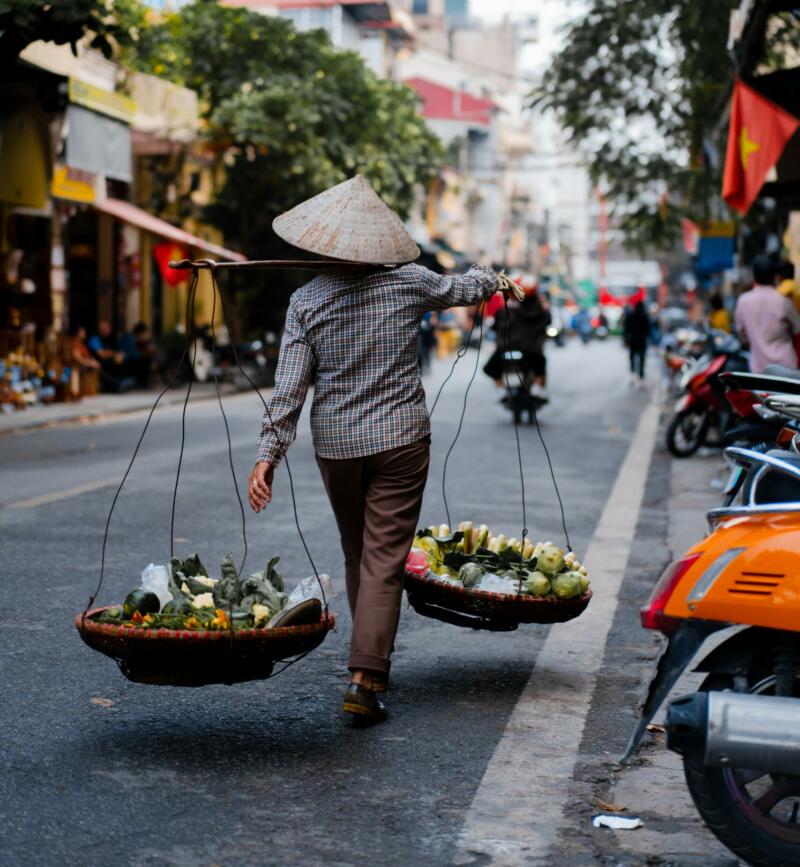Dutch-Vietnamese collaboration in the field of circular plastic waste management
October 07, 2021
The webinar Plastic Waste Management in Vietnam has been co-organized with the Netherlands embassy in Hanoi and the Dutch Business Association Vietnam.
With the objective to encourage Dutch- Vietnamese business collaboration in the field of circular plastic waste management, the webinar was organized in two parts:
- Given an overview of the political and legal plastic waste landscape in Vietnam, introduce the status quo and provide a contact for Dutch businesses interested in expanding to Vietnam (DBAV).
- Inspire with best practices in the plastic waste management sector

Highlights of the event: insights from the experts
The first part of the event was presented by experts from the field. Mrs. Nam, ISPONRE, presented the recently revised Law on Environmental protection with link to EPR schemes on plastics. Opportunities such as the following were mapped:
- technology transfer
- reorganization of value chains and
- waste return systems
Mrs. Ha introduced the work of NPAP linked to the national action road map to achieve Vietnam´s national targets for 2030. On this background, stakeholders, as well as challenges and opportunities, were mapped. Amongst others:
- Alternative materials production
- Recycling infrastructure, waste treatment facilities
- R&D, advanced technology transfer
- Digital solutions for product traceability, supply chain management, EPR
- Participate in national-level cross-sectoral planning and policy development via NPAP processes.
Mr. Rooy introduced the network of DBAV as a helpful and first point for connection for Dutch enterprises doing business in Vietnam.
This first part was rounded up by a panel discussion with the following questions:
What is the timing for Dutch expertise to support the Roadmap, what are immediate opportunities?, what are long-term opportunities, what will the future bring in terms of Dutch business opportunities/ Dutch expertise?
According to Mrs. Ha, Dutch businesses are important to participate the policy development in Vietnam. “Dutch businesses can actively get involved in shaping the policy landscape to create a circular business enabling environment. There are many business opportunities for collaboration with Vietnamese companies in the plastic waste management sector in the long term. NPAP can support the matching of Vietnamese demand with Dutch supply and identify investment opportunities.”
Mr. Nam showed us the governmental perspective. What is expected or hoped for from Dutch businesses to support the upcoming legislation and national plans? What are the advantages of Dutch businesses in Vietnam?
“At the moment, Vietnam is creating a legal framework for the implementation of the circular economy. For this, international experience is needed. Dutch expertise on introducing EPR schemes for plastics, plastic waste management in general, and how companies can embrace circularity is therefore helpful to realize a circular plastic sector in Vietnam.”
“Today, many gaps in the plastic waste management chain in Vietnam were showed. Dutch companies can offer solutions for Vietnamese challenges. They can fill these gaps, especially looking at Dutch technology for plastic waste treatment. Needed are recycling- and waste treatment units. Furthermore, Dutch businesses can share their experience to support decision-makers. And give insight into the difficulties in realizing circularity for enterprises, and adjustments needed to create to enable circularity.”
-Mr. Nam
Best practices: Vietnamese and Dutch circular showcases
The second part of the webinar followed the value chain order for mapping best practices. Cases from both Vietnamese and Dutch enterprises already operating in Vietnam were presented.
- Mrs. Anh, Unilever, shared experience from a private company’s view in gaining control over plastic waste by applying CSR. Collaboration was a key element to enhance a better waste infrastructure by investing in the collection in partnership with the local waste management company URENCO and using recycled material as input for new packaging. Unilever also showcases the importance of educating consumers about the value of waste separation and sensitizes recycling necessity.
- Mrs. Loan, URENCO, described the local waste management situation in Hanoi from the perspective of a private company executing formal waste management practices with special attention to waste collection. The key element is to educate communities and businesses about the value of waste separation at the source.
- Mr. van den Hoek, Sweep Smart, shared best practices from India and Ghana in professionalizing waste sorting by the informal sector through the integration of Dutch sorting facilities. This technology and approach are important and applicable for Vietnam, where (plastic) waste management is dominated by the informal sector in many regions, improving the industry’s environmental performance and contributing to social sustainability.
- Mrs. Thanh shared insights into a Vietnamese-based enterprise that recycles plastics (PVC and PET) into new applications such as pipes, flooring, and frames. Tan Than Phong showcases how plastic waste material is recycled and applied in new products and creates a price advantage compared to non-recyclable alternatives.
- Mr. Stolk, Ioniqa, presented a technology that might be very relevant for the future in Vietnamese plastic waste management: chemical recycling and mechanical recycling technologies, which cannot capture all plastic waste. However, this technology can support reducing the pressure of overflowing landfills.
- Mr. Folmer shared Upp! ‘s technology and experience as a Dutch company operating in Vietnam, creating local solutions out of plastic waste. The Upp! cycling technology allows the treatment of all plastics of different quality grades and makes durable and circular construction materials that are affordable and recyclable all over again. A solution for re-purposing low-value plastic waste.
